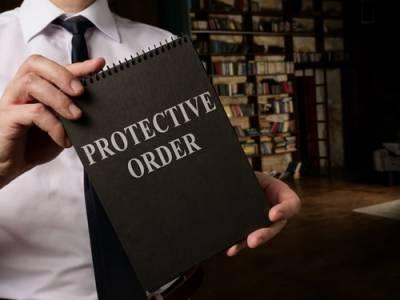Recent Blog Posts
How Does Sole Custody Work in 2022?
 As you may already know, Illinois laws are frequently updated and modified. Some of the biggest changes to Illinois divorce and family law took place in 2016. The language used to describe child custody matters was just the start of the changes. Legislators also modernized the way courts handled child custody and divorce issues, prioritizing the involvement of both parents in a child's life.
As you may already know, Illinois laws are frequently updated and modified. Some of the biggest changes to Illinois divorce and family law took place in 2016. The language used to describe child custody matters was just the start of the changes. Legislators also modernized the way courts handled child custody and divorce issues, prioritizing the involvement of both parents in a child's life.
If you are getting divorced or are unmarred and share a child with an ex, you may have questions about how to get sole custody. How does sole custody work? Can a father get sole custody? Are mothers granted sole custody by default? These are complicated questions, and the answers vary case by case. The best way to get advice specific to your situation is to work with a skilled family law attorney. Read on to learn more about how Illinois law currently handles custody matters.
Sole Custody Versus Joint Custody in Illinois
5 Common Co-Parenting Arguments and How to Prevent Them
 Being a parent is hard regardless of your marital status. But co-parenting kids with an ex comes with additional challenges. If you are planning to divorce or you are an unmarried parent sharing custody of your kids with an ex, you may already have experienced some of these difficulties. Parents may disagree about parenting time schedules, their child's education or participation in extracurricular activities, healthcare, and much more.
Being a parent is hard regardless of your marital status. But co-parenting kids with an ex comes with additional challenges. If you are planning to divorce or you are an unmarried parent sharing custody of your kids with an ex, you may already have experienced some of these difficulties. Parents may disagree about parenting time schedules, their child's education or participation in extracurricular activities, healthcare, and much more.
Every co-parenting relationship is bound to experience problems, but there are steps you can take to lessen co-parenting disagreements.
Disagreements About Child-Related Issues
Parents often have strong opinions about what is best for their children. When parents disagree on what is in their child's best interests, the situation can quickly devolve into an argument.
How Does Legal Separation Work in Illinois?
 When a marriage breaks down, it can be hard to know what to do. Getting divorced is an irreversible action that will likely influence both spouses’ lives profoundly. Spouses contemplating divorce may be hesitant to file for divorce if they are not completely sure it is the right choice. The situation becomes more complicated if a spouse is involved in an unhappy marriage, but religion, culture, or personal beliefs prohibit divorce. Legal separation is an alternative to divorce you may want to explore if you are in a situation like this.
When a marriage breaks down, it can be hard to know what to do. Getting divorced is an irreversible action that will likely influence both spouses’ lives profoundly. Spouses contemplating divorce may be hesitant to file for divorce if they are not completely sure it is the right choice. The situation becomes more complicated if a spouse is involved in an unhappy marriage, but religion, culture, or personal beliefs prohibit divorce. Legal separation is an alternative to divorce you may want to explore if you are in a situation like this.
Legal Separation in Illinois
It is important to note that being legally separated involves much more than simply living in different homes. You and your spouse may decide to separate physically to provide some space while you decide what to do next. However, if you want to get legally separated, you will need to file a Petition for Legal Separation and address many of the same concerns that you would address during divorce. During the legal separation process, you will need to address:
What Happens at a Hearing For an Order of Protection?
 Domestic violence victims in Illinois have the option to get an order of protection to protect themselves, their children, and their property. A protection order is often the first step in leaving an abusive marriage or relationship. Protection orders can also provide legal protection if the abuse is at the hands of an ex-romantic partner, current or former household member, or family member. Unfortunately, many domestic violence victims are unaware of their rights and options under Illinois law. This leads them to suffer in silence and without the legal protection they need. Read on to learn about protection order hearings and what you can do if you are ready to get a protection order for yourself or a loved one.
Domestic violence victims in Illinois have the option to get an order of protection to protect themselves, their children, and their property. A protection order is often the first step in leaving an abusive marriage or relationship. Protection orders can also provide legal protection if the abuse is at the hands of an ex-romantic partner, current or former household member, or family member. Unfortunately, many domestic violence victims are unaware of their rights and options under Illinois law. This leads them to suffer in silence and without the legal protection they need. Read on to learn about protection order hearings and what you can do if you are ready to get a protection order for yourself or a loved one.
Emergency Protection Orders May Be "Ex Parte" Orders
The first step in seeking legal protection against an abusive or harassing individual is an Emergency Order of Protection (EOP). In Illinois, EOPs are offered on an "ex parte" basis which means that the respondent (the subject of the order) does not need to be present. You can get an EOP from the court based solely on your testimony. The abuser’s presence is not required. Often, domestic violence victims are able to get an EOP on the same day on which they requested it.
Is Co-Owning a Family Business With an Ex-Spouse a Realistic Option?
 Divorcing couples have many important financial issues to consider. When one or both spouses own a business, the financial complexity of divorce is amplified. The situation becomes even more complicated if the spouses owned and managed a family business together. Some spouses in this situation decide to sell the entire business and divide the proceeds equitably. This gives both spouses the opportunity to pay off debts and start their post-divorce life with some degree of financial security. Other couples decide that one spouse will keep the business and buy out the other spouse’s share with assets of equivalent value. Another option is to continue running the family business together as a divorced couple.
Divorcing couples have many important financial issues to consider. When one or both spouses own a business, the financial complexity of divorce is amplified. The situation becomes even more complicated if the spouses owned and managed a family business together. Some spouses in this situation decide to sell the entire business and divide the proceeds equitably. This gives both spouses the opportunity to pay off debts and start their post-divorce life with some degree of financial security. Other couples decide that one spouse will keep the business and buy out the other spouse’s share with assets of equivalent value. Another option is to continue running the family business together as a divorced couple.
Keeping a Jointly Held Business After Divorce
Owning a small or medium business is no easy feat. A fifth of all small businesses fail before the end if the business’s first year. Half fail within five years. If you own a successful family business with your spouse, you may be hesitant to make any changes that threaten the success you worked so hard to achieve. You and your spouse may be fully committed to the business and unwilling to give up your share of the company during divorce.
Am I On the Hook for My Spouse’s Debt if We Get Divorced?
 If you are getting divorced, there are probably a thousand questions running through your head at any moment. Divorce can have major personal and financial implications. One issue many people worry about is what happens to debts in a divorce. You or your spouse may have student loans, credit card debts, personal loans, a mortgage, and other debts. What happens to this debt when you get divorced? Who is ultimately liable for debts accumulated during a marriage? The answers to these questions vary. An experienced divorce lawyer can help you understand your financial rights and responsibilities during your divorce and the best way to protect your financial interests.
If you are getting divorced, there are probably a thousand questions running through your head at any moment. Divorce can have major personal and financial implications. One issue many people worry about is what happens to debts in a divorce. You or your spouse may have student loans, credit card debts, personal loans, a mortgage, and other debts. What happens to this debt when you get divorced? Who is ultimately liable for debts accumulated during a marriage? The answers to these questions vary. An experienced divorce lawyer can help you understand your financial rights and responsibilities during your divorce and the best way to protect your financial interests.
Is the Debt Marital Debt or Non-Marital Debt?
The first question you will need to ask yourself regarding debt is whether the debt is considered marital debt or non-marital debt. Ideally, spouses will have signed a prenuptial agreement that clearly explains which debts and assets are marital and non-marital. However, if there is no such agreement, the debt classification will be determined by Illinois law.
Getting Divorced When You Have Depression: A Survival Guide
 Did you know that over seven percent of adults in the United States suffer from major depressive disorder? Depression is extremely common. The illness, marked by persistent low mood, little interest in enjoyable activities, and feelings of worthlessness, is something many people struggle with on a daily basis. Studies show that the ongoing COVID-19 pandemic has only increased the incidence of depression and anxiety.
Did you know that over seven percent of adults in the United States suffer from major depressive disorder? Depression is extremely common. The illness, marked by persistent low mood, little interest in enjoyable activities, and feelings of worthlessness, is something many people struggle with on a daily basis. Studies show that the ongoing COVID-19 pandemic has only increased the incidence of depression and anxiety.
If you have depression, you know how deeply it can affect your life. Going through a divorce when you have depression only adds to the difficulty.
Strategies for Divorce When You Suffer from Depression
Divorce is stressful and sad under the best of circumstances. Ending a marriage when you suffer from a serious mental illness like depression can seem impossible. However, it is possible to get through your divorce and move on to a happier post-divorce life.
There is nothing that can make your divorce completely pain-free, however, the following strategies may help:
Planning on a Prenup? Make Sure To Avoid These Mistakes
 Prenuptial agreements are useful for any type of couple. Individuals may use a prenuptial agreement to protect assets, such as a small business, in the event of divorce. Individuals who choose to sacrifice career advancement to stay home with children may use a prenup to ensure they will have access to spousal support if the marriage ends. Older couples who are getting married for the second or third time may have children from a previous relationship and choose to use a prenuptial agreement for inheritance reasons. The possibilities are nearly endless. However, prenuptial agreements may be completely worthless if they are not drafted properly.
Prenuptial agreements are useful for any type of couple. Individuals may use a prenuptial agreement to protect assets, such as a small business, in the event of divorce. Individuals who choose to sacrifice career advancement to stay home with children may use a prenup to ensure they will have access to spousal support if the marriage ends. Older couples who are getting married for the second or third time may have children from a previous relationship and choose to use a prenuptial agreement for inheritance reasons. The possibilities are nearly endless. However, prenuptial agreements may be completely worthless if they are not drafted properly.
Prenuptial Agreements Must Be Drafted Correctly
You and your soon-to-be spouse may trust each other to simply make plans verbally. They may assume that they do not need a formal agreement. However, prenuptial agreements must be in writing and signed by both parties to be enforceable. The parties must be of sound mind and fully agree to the terms of the prenup.
4 Common Questions About Parenting Time in Illinois
 When divorcing spouses share children together, the divorce process becomes much more complicated. In addition to financial matters like property division, the couple must also address child-related concerns like child custody and child support. Read on to learn about some of the top questions Illinois parents have about parenting time and what you can do to get personalized legal guidance during your divorce case.
When divorcing spouses share children together, the divorce process becomes much more complicated. In addition to financial matters like property division, the couple must also address child-related concerns like child custody and child support. Read on to learn about some of the top questions Illinois parents have about parenting time and what you can do to get personalized legal guidance during your divorce case.
How is Parenting Time Different Than Child Custody?
One of the most complicated parts of the divorce process is navigating the sea of confusing legal terms and language. Illinois law no longer uses the term child custody. Instead, child-related matters are broken down into the allocation of parental responsibilities and parenting time. Parental responsibilities refer to the parents’ right to make decisions about their child’s education and other important matters. Parenting time is the time that parents spend with their children. The parents will include their parenting time schedule in their parenting plan and submit it to the court for approval.
What Divorced Parents of College-Aged Children Need to Understand About College Expenses in 2022
 For any parent, the prospect of paying for college can be daunting. College tuition is becoming more and more expensive each year. Unmarried and divorced parents may be understandably even more concerned about how to finance their child’s higher education. Paying for tuition, housing, books, and other educational fees can be even harder to manage in a one-income household.
For any parent, the prospect of paying for college can be daunting. College tuition is becoming more and more expensive each year. Unmarried and divorced parents may be understandably even more concerned about how to finance their child’s higher education. Paying for tuition, housing, books, and other educational fees can be even harder to manage in a one-income household.
The average annual cost of attending an in-state public university is just over $25,000 in 2022. For a private university, that number more than doubles. If you are unmarried or divorced and you have kids, it is important to understand your rights and responsibilities regarding your child’s college expenses.
How Are College Expenses Divided If Parents are Divorced or Unmarried?
Most married parents work together to figure out how to pay for college tuition and related expenses. However, if parents were never married or have divorced, they may be confused about which parent is responsible for paying college expenses. Illinois is unique in that the law can require unmarried or divorced parents to contribute to their child’s higher education.












